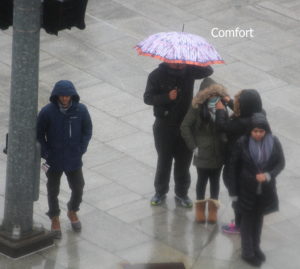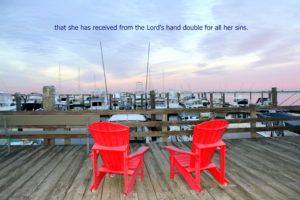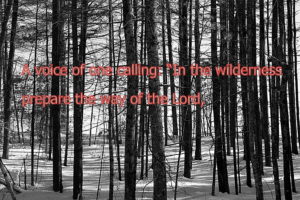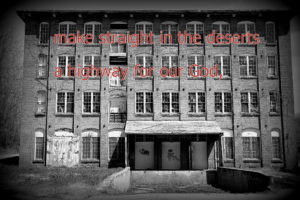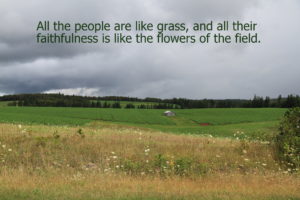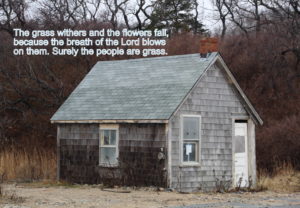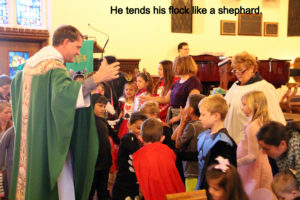Readings: Psalm 146:5-10; Ruth 1:6-18; 2 Peter 3:1-10
I read something just yesterday that broke my heart. One of the greatest football players I ever witnessed with my own eyes, pure poetry in motion, a former Heisman Trophy winner, one of the greatest running backs in the history of college football, committed suicide at age 42 in a park located on Boulder, Colorado’s west side. In 1994, he was the toast of the town, the talk of the whole country. The tragedy has set me wondering: where does happiness end and despair begin? This is a fair question in a culture dominated by youth, material success and fame, by anxiety, depression and psychotropic medication.
I think the psalm appointed for today can perhaps give us some clues. “Happy are they who have the God of Jacob for their help! Whose hope is in the Lord their God…” (Psalm 146:4) It sounds rather cliché, don’t you think? Believe in God and everything will take care of itself? I wonder if there is more to it than simply being attentive to God. I believe what the Psalmist could be getting at is this notion that our deepest joy is found in being about what God is about, in being co-creators with the Creator. The Psalmist is clear:
God gives justice to those who are oppressed and food to those who hunger.
God is busy setting free those who are imprisoned by life’s snares.
God opens the eyes of the blind and lifts up those who are dejected and lonely.
God is about befriending the stranger and giving hope to the orphan and the widow.
God does in fact stand in the way of wickedness and all the forces at work to dehumanize and objectify.
If this is what God is about, then couldn’t we say that our joy and happiness may very well stem from joining this work in our own way and in our own context? Such work isn’t flashy and it won’t make us famous, but siding with God and God’s creatures is divine work with eternal consequences.
This is not to say that this young man didn’t join God’s work, but somewhere along the line that all got clouded over and lost in the translation. One of his teammates said, “He was so defined, I think too often by winning the Heisman Trophy and not by other things that made him a whole person, things that he loved and cared about and I think he, in fact I know he had challenges at times making that transition.” (CBS News)
If the suicide of a young, healthy and famous football player is the face of despair, then the face of hope must certainly be whatever make us whole, whatever profoundly connects us with our Creator and all of God’s beloved creatures.
O heavenly Father, who has filled the world with beauty: Open our eyes to behold your gracious hand in all your works; that, rejoicing in your whole creation, we may learn to serve you with gladness; for the sake of him through whom all things were made, your Son Jesus Christ our Lord. Amen. (BCP 814)
Come, Lord Jesus, Come.
Offered by Dave Fredrickson, spiritual director, priest, seeker of the Christ Child.


